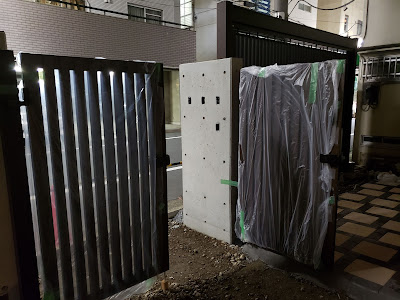As an annual tradition, we had the O-bon festival at home in Tokyo this year, too.
In my hometown, Fukushima, the O-bon festival is in mid-August (called the Kyuu-bon, that is Old Obon, based on old lunar calendar), but in Tokyo, it's in mid-July, called the Shin-bon (New Obon based on new solar calendar) festival. .
During the Obon season, our ancestors return to this world to spend time with us, and then return to the other world, once a year.
We make cow and horse from eggplant and cucumber, and decorate them as a vehicle for the ancestors to ride back to this world.
On July 13th, we make a "welcoming fire (Mukae-bi)" to welcome our ancestors. First, open the gate of the house and prepare to welcome our ancestors.
After the gate is opened, an ogara wood is placed on a roasting pan (called houroku) like a tower.
The smoke from the roasting pan is used to mark the return of our ancestors.
When the burnt-out ogara is finished, a flickering red color remains, and it becomes a beautiful sight to see it swaying.
The rest of the time, the water is dipped into the misohagi leaves, which is then poured over the burned-out ogara to purify it, and then the water is poured over it to make it completely put out the fire. Then close the gate of the house.
Our ancestors are invited into the house and spend time together with us.
On July 16th, the last day to say goodbye to our ancestors finally arrives. Our ancestors are sent back to the other world with a "farewell fire (okuri-bi)".
The procedure is the same as the welcoming fire. The gate of the house is opened and ogara is placed on a roasting pan (houroku). The fire is set. The smoke is made to bring our ancestors back to the other world.
When the ogara fire has burned out, pour water on it with a misohagi and when the fire is completely extinguished, say goodbye to our ancestors. Finished.
There are two family death anniversaries during this new Bon festival time. These are four days (13-16 July) that I feel more strongly about our loved ones who once lived here with us.






Comments
Post a Comment